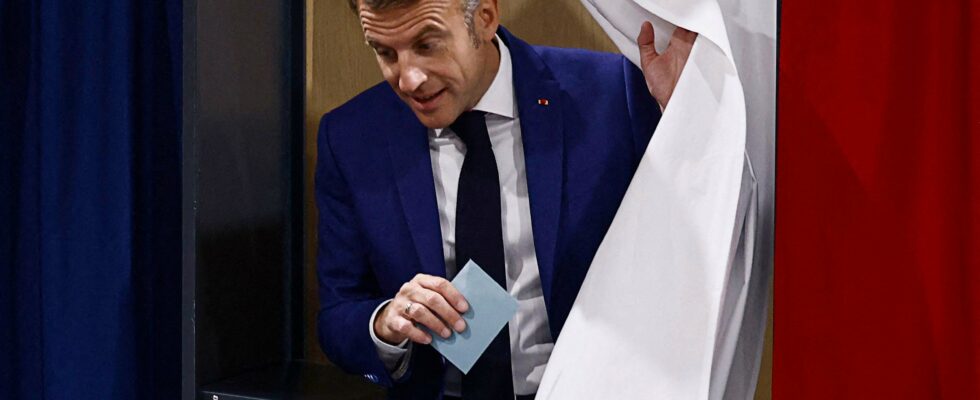Democracies are particularly exposed to the risk of populism, which could eventually make them disappear. Today, we see the very worrying rise of this threat everywhere, in the United States, in Europe and especially in France. For what reasons?
The answer is quite simple, in principle. In a democracy, it is the citizens who vote. They therefore naturally bring their personal demands to the political stage at election time: who wouldn’t want to earn more, be better protected, pay lower taxes, work less, retire earlier, pay less for petrol, energy, rent and, in short, see their purchasing power improve?
It is normally up to political and social organizations, in the broad sense of the term (political parties, local elected officials, parliamentarians, government figures, unions, independent authorities, experts), to analyze these requests, measure the consequences over the duration of this or that political and remind everyone that we can only distribute wealth that has actually been produced. Any measure taken in favor of citizens must be financed, otherwise it will be illusory. This transformation work is fundamental, before any decision is made. There is no democracy worthy of the name without this collective debate and discipline. We cannot respond to the desires of one or the other without real in-depth work. How many French people know that our per capita productivity has decreased by around 6% over the past five years? And we are surprised to see growth that is too sluggish to meet demands?
But real political work has disappeared with the intermediary bodies. We have evolved more and more quickly towards the reinstitution of a kind of monarchy where the king, alone at the top, multiplies immediate promises that he is incapable of keeping and that he believes are sufficient to ensure his popularity. The word replaces action. In the obvious absence of results, the disappointed people end up expressing only growing anger. Populism is taking hold.
France is particularly exposed to this danger, for institutional reasons. Emmanuel Macron is therefore not the only one responsible for this tragic development. But he has increasingly embodied it and, through his personal decision, has single-handedly decided to brutally destroy the last space where we could perhaps hope to see a responsible and intelligent dialogue reborn: the National Assembly.
The new Louis XVI achieved what he wanted
From the origin of the Constitution of the Fifth Republic, General de Gaulle refused the idea of a parliamentary regime and explained in barely subdued terms that he wanted to reestablish the stability of a monarchical power. But he had fortunately anticipated the presence of counter-powers: the Prime Minister who directs the government’s action, the National Assembly elected every five years while the President can think in the longer term since he is elected for seven years. , which leads to the possibility of cohabitation, therefore of “living together” in politics.
The first major slippage occurred in 1962 when, by referendum, de Gaulle established the election by universal suffrage of the President of the Republic: the people directly chose their monarch. It was then the adoption of the five-year term under the dual impetus in the year 2000 of Lionel Jospin and Jacques Chirac that aggravated the institutional slippage: Parliament was at the orders of the executive before it had even met. The legislature was subject to the executive, which is an absurdity that does not exist in any true democracy. At the same time, political time is punctuated by periods that are too short for the development of actions that are part of the long term.
Thus, an irreversible shift of the entire executive power towards the Elysée has gradually occurred, to the detriment of Matignon and the Prime Ministers, who are now nothing more than “collaborators” of the President. But this transformation was brought to its peak, in all lucidity, by Emmanuel Macron. Should we quote him? In July 2015, he declared: “There is an absentee in the democratic process and in its functioning. In French politics, this absentee is the figure of the king, whose death I fundamentally believe that the people did not want.” In October 2016, to make himself clearly understood, he added that France needed a Jupiterian president.
Well, thanks to the madness of a totally verticalized power that pushed him to commit a sort of crime against democracy, King Emmanuel Macron is once again alone before the people. The electoral campaign, which could give victory to the extreme right, is taking place in a necessarily incomprehensible manner. The programs are of no importance: those of the National Rally on one side, of the New Popular Front on the other, are both equally inapplicable and contain a long list of promises that are impossible to achieve: electoral success commands. Armies of economists driven by their ideology more than by intellectual rigor are increasing their support for proposals that are imaginary. As for the current majority, already crushed, it continues to say, as it has for the last seven years: “Have confidence, vote for us and all your problems will be solved”, while none of the major challenges that we have to address to improve the situation of all French people (public debt, competitiveness of the productive apparatus, thermal renovation plan, research and development, training of young people, overall employment rate) have simply been defined. Do not worry, good people, there will be no tax increases, an irresponsible Minister of Finance constantly declares.
Conclusion, the new Louis XVI achieved what he wanted: to be alone in front of the people. King Macron will have the pleasure of reviving the history for which he is nostalgic: in the symbolic order, the people will cut off his head.
.
